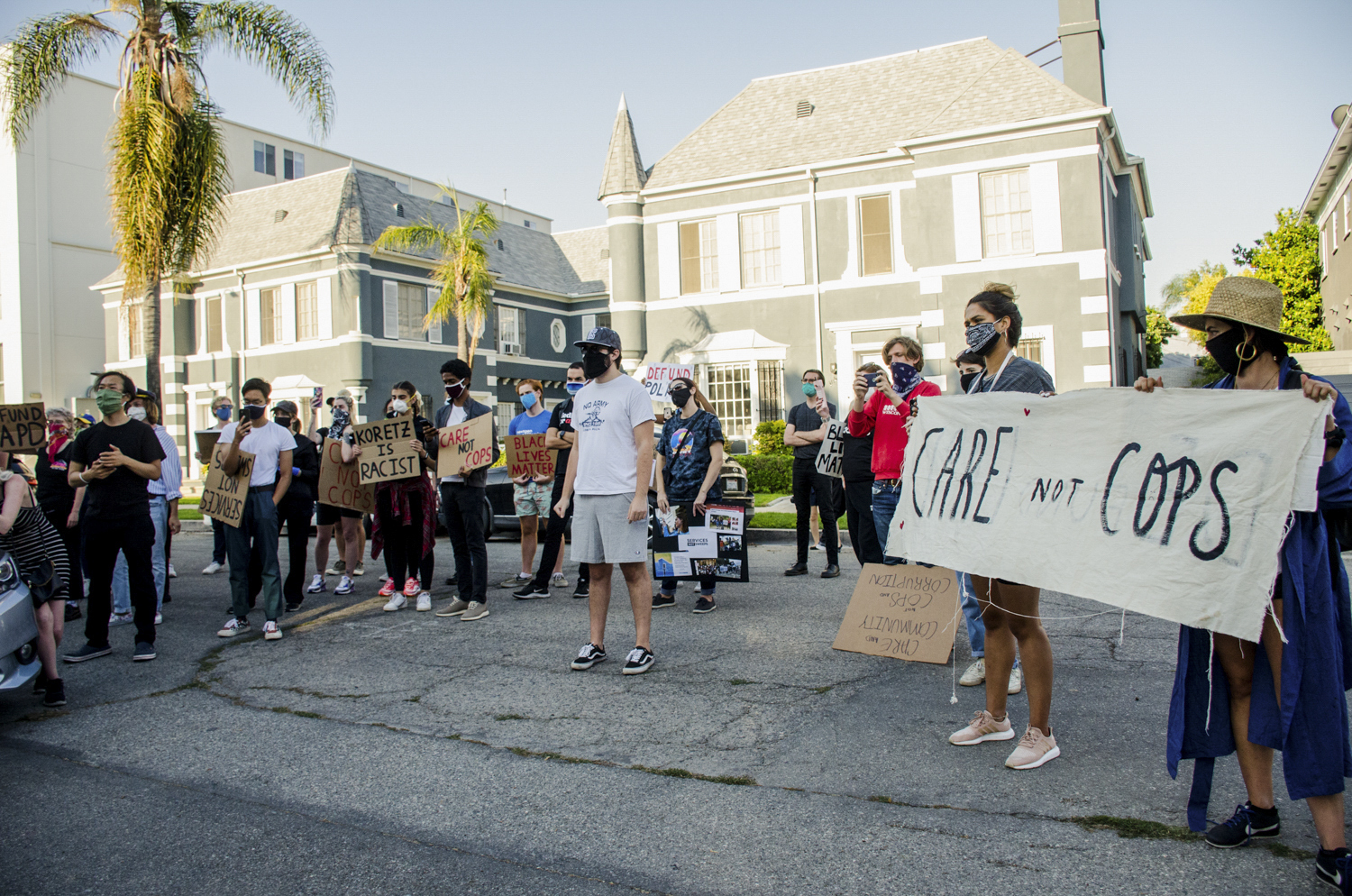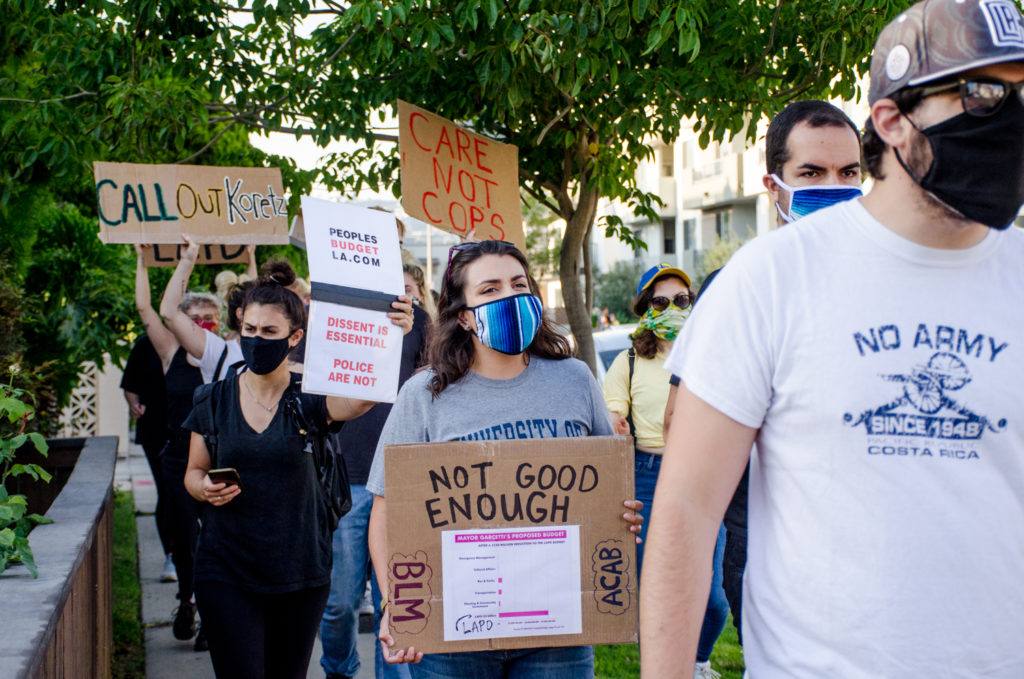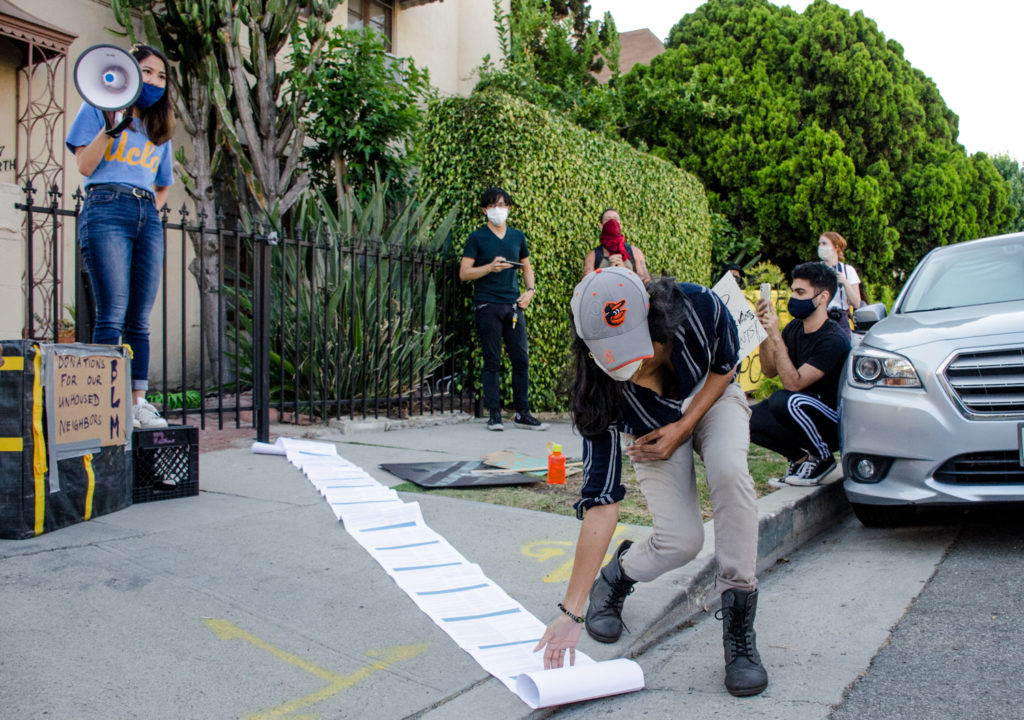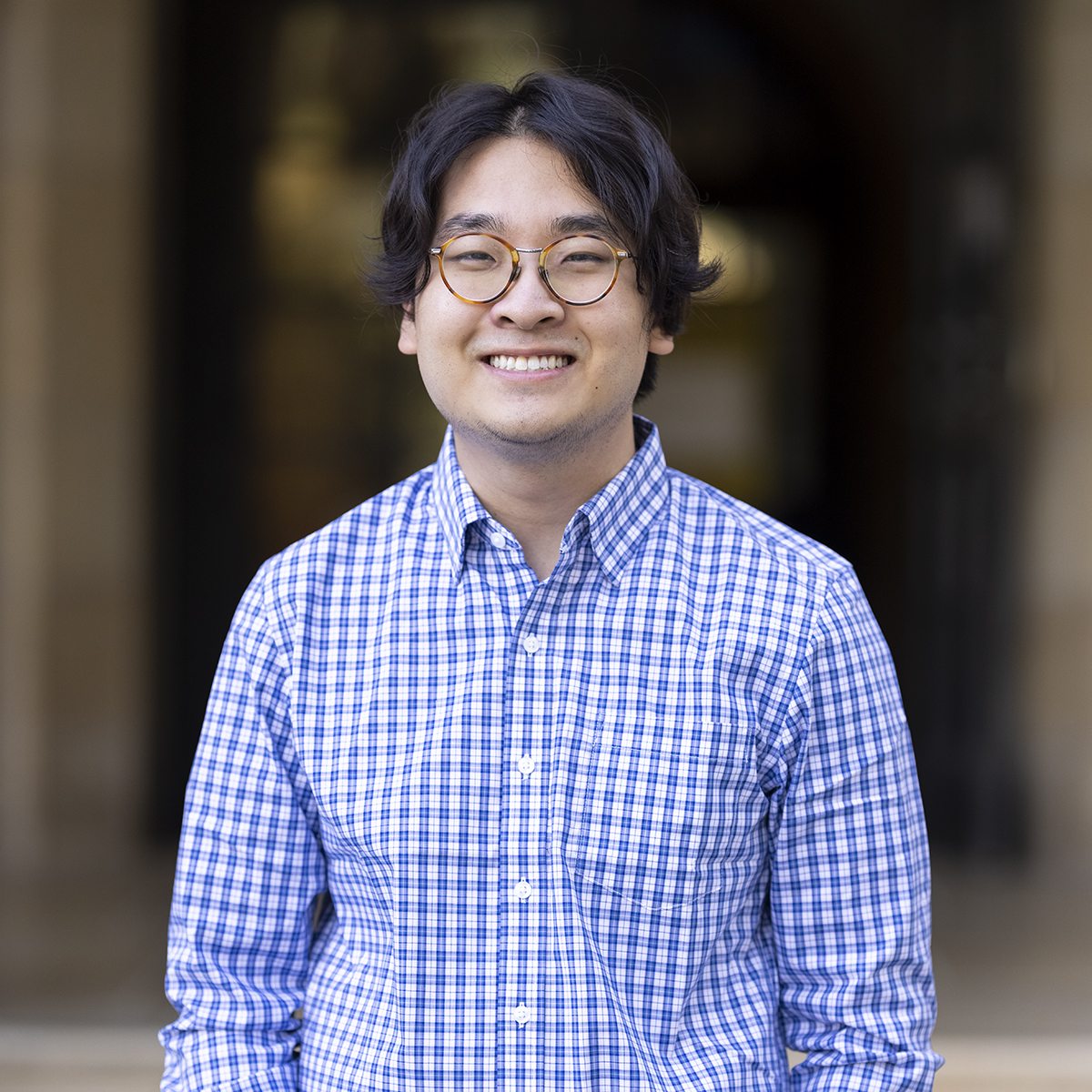Protesters outside Councilmember Koretz’s house criticize his vote on police budget

Protesters gathered in front of City Councilmember Paul Koretz’s Beverly Grove house to protest his vote against a proposal to identify parts of the LAPD budget to cut. (Kanishka Mehra/Photo editor)
This post was updated June 28 at 10:58 p.m. to reflect information about Paul Koretz’s June 22 vote in favor of cutting the LAPD budget and his vote in favor of increasing non-police emergency responders.
Dozens of students and community members gathered in front of a city councilmember’s house to advocate for increased local police budget cuts.
The UCLA Undergraduate Students Association Council Office of the External Vice President and Westwood community members organized the Saturday protest. Protesters marched from the intersection at North La Jolla Avenue and 1st Street several blocks down to Los Angeles City Councilmember Paul Koretz’s Beverly Grove home.
The LA City Council voted June 16 to identify parts of the Los Angeles Police Department budget to be cut, up to about $150 million.
However, Koretz was one of three council members who voted against the motion proposal, which ultimately passed June 16 in an 11-3 vote.
On June 22, a council subcommittee voted in favor of a proposal to cut about $133 million from the LAPD budget. Koretz joined three other Budget and Finance Committee members in voting 4-1 for the proposal.
The LA City Council and Mayor Eric Garcetti have until June 30 to approve the subcommittee’s budget proposal.
The Saturday protest criticized Koretz’s June 16 vote against identifying potential LAPD budget cuts. Koretz represents the Los Angeles City Council District 5, which includes the UCLA campus and Westwood.
Demonstrators on foot and in cars gathered Saturday on King’s Road near Koretz’s house, chanting “Call out Koretz, quit your job,” and “Defund the police.”

Calls for budget cuts to police departments have risen nationwide following ongoing protests against police brutality and racial injustice, which began after a Minneapolis police officer killed George Floyd May 25.
The demonstrators gave speeches and called for cuts to the LAPD budget. Several passing cars also honked along to the protesters’ chants.
USAC organized the protest because Koretz voted against recommendations from the NWWNC and UCLA student leaders to reduce the LAPD budget, said Aidan Arasasingham, the USAC external vice president.
“There’s no greater reflection of our city’s values than its budget, and consistently Councilmember Koretz has voted for increases in police funding at the expense of vital services and support for residents,” said Arasasingham, a rising fourth-year global studies student.
The LAPD deployed several police officers and a police car in response to the protest.
Nicolas Emmons, a community organizer who attended the protest, said he hopes Koretz will reconsider his position on the police budget if community members continue to demonstrate.
The People’s Budget LA, a group of community organizations led by Black Lives Matter LA, called for steep cuts to the LAPD budget.
The NWWNC passed a resolution June 10 endorsing the People’s Budget LA’s budget proposal and calling on Koretz to support LAPD budget cuts. Arasasingham said both his office and the Afrikan Student Union at UCLA also supported the People’s Budget LA’s proposed cuts.
However, Koretz was one of three council members who voted against the budget proposal, which ultimately passed June 16 in an 11-3 vote.
Koretz did not immediately respond to requests for comment.
Arden Dressner Levy, who works in the USAC EVP office, said the People’s Budget LA believes only 5.7% of the city’s unrestricted funding should go to the police; the LAPD’s $1.7 billion budget currently receives about half of the city’s unrestricted funds.
Garcetti agreed in early June to cut the LAPD budget by about $150 million and redirect up to $250 million of the city budget to community services.
“We should be prioritizing universal needs such as housing, childcare, healthy food, clean air and water, pandemic recovery, (the) environment and reimagined public safety over the police department,” said Dressner Levy, a rising fourth-year international development studies student.
Dressner Levy added that the police dispatches officers to emergency situations that officers are not qualified to respond to.
“Police are not trained to deal with mental health crises; bringing weapons into mental health crises is incredibly dangerous,” Dressner Levy said. “Folks with mental illness are 16 times more likely to be harmed and hurt by the police to be victims of police violence.”
Divesting from police and reinvesting in community services improves community safety, Arasasingham added.
A USAC EVP petition directed at Koretz calling to expand the use of non-police emergency responders received more than 600 signatures, said Zahra Hajee, the NWWNC vice president.

Koretz has not responded to this petition, said Nina Long, the USAC EVP chief of staff and a fourth-year public affairs student who attended the protest.
The LA City Council Ad Hoc Committee on Police Reform voted Wednesday to recommend city officials research ways to expand the use of non-police emergency responders.
Koretz and the four other members of the subcommittee voted unanimously in favor of the recommendation. However, the city council itself must approve the recommendations for them to take effect.
Progress has been slow because many city council members accept campaign contributions from police unions and organizations, Ahmed said. Since 2000, Koretz has accepted at least $17,748 from the several California police unions and organizations, according to publicly available records.
However, Hajee said organizing and protesting are effective in advocating for local change. There has been more progress on police reforms in the past three weeks than over the last several years, Hajee added.
“The power of communities coming together and demanding that change from their local representatives can go a really long way,” Hajee said.



